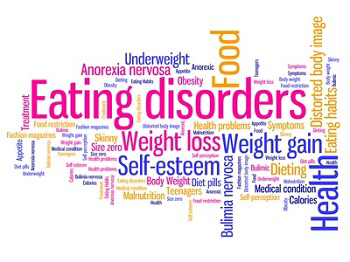Could You Have an Eating Disorder?
3/2/2016
Last Sunday kicked off National Eating Disorder Awareness Week, a week at the end of February dedicated to raising awareness for a mental disorder about which many are uninformed and uneducated. Eating disorders (EDs) affect millions, yes millions of men, women, boys and girls of every race, religion, ethnicity and nationality worldwide! Despite the fact that so many suffer, so little research and funding has gone into the treatment of EDs compared to the other illnesses out there. EDs are the number one killer of any mental disorderand males and females alike are dying everyday due to complications from their EDs. Although there is a high prevalence, specifically in America, EDs are still an incredibly taboo topic, which is why so many of its victims go untreated. Today I want to break the stigma, if only for a moment, and talk about these awful disorders. This year’s theme of National Eating Disorder Awareness Week is “3 Minutes Can Save a Life”, which is encouraging screenings for those who could potentially be at risk for developing an eating disorder or for those who are already exhibiting disordered eating behaviors.
There are a lot of misconceptions about what an eating disorder is, so let’s break it down with a direct quote from the National Eating Disorder Awareness website: Eating Disorders are real, complex medical and psychiatricillnesses that can have serious consequences for health, productivity and relationships. They are caused by both genetic and environmental factors. EDs are bio-psycho-social diseases; they are not a fad, phase or lifestyle choice. In the United States, 20 million women and 10 million men suffer from a clinically significant eating disorder at some time in their life. Eating disorders include anorexia nervosa, bulimia nervosa, binge eating disorder and OSFED (other specified feeding or eating disorder). People struggling with an eating disorder typically become obsessed with food, body image and/or weight. These disorders can become very serious, chronic and life-threatening if not recognized and treated appropriately. The earlier a person seeks treatment, the greater the likelihood of physical and emotional recovery.(http://nedawareness.org/sites/default/files/school_guide_nedawareness2016.pdf) It should come as no surprise to you that the majority of those affected by EDs are women and girls, given the society we live in, but men and boys certainly suffer as well. The website goes on to list how eating disorders develop, the symptoms and the general treatment process, and while I’m not going to list all of that here in my blog, I encourage you to check the site if you believe that you could be at risk. Most eating disorders develop between adolescence and early adulthood, but one can diagnosed as early as preschool and suffer through old age. I also want to point out that there is nothing “beautifully tragic” or “glamorous” about having an eating disorder. The media seems to enjoy romanticizing these types of illnesses, trying to make them trendy and even cute, but there is absolutely nothing cute about having an eating disorder. Don’t let anyone tell you otherwise. Those who suffer can sometimes have a very difficult time recovering because of the mental hold that EDs have over their victims. That being said, recovery is a choice and recovery is possible! The road to recovery from an ED can be lifelong, but once one finds themselves free from the worst parts of their ED, they can live a happy and fulfilling life. If you suspect that you or someone you know could have an eating disorder of any type, I encourage you to get screened or talk to your doctor or someone that you trust who can help. Raise Awareness the rest of this week by wearing purple! Love always, Gigi
0 Comments
|
Confidence &
|

 RSS Feed
RSS Feed